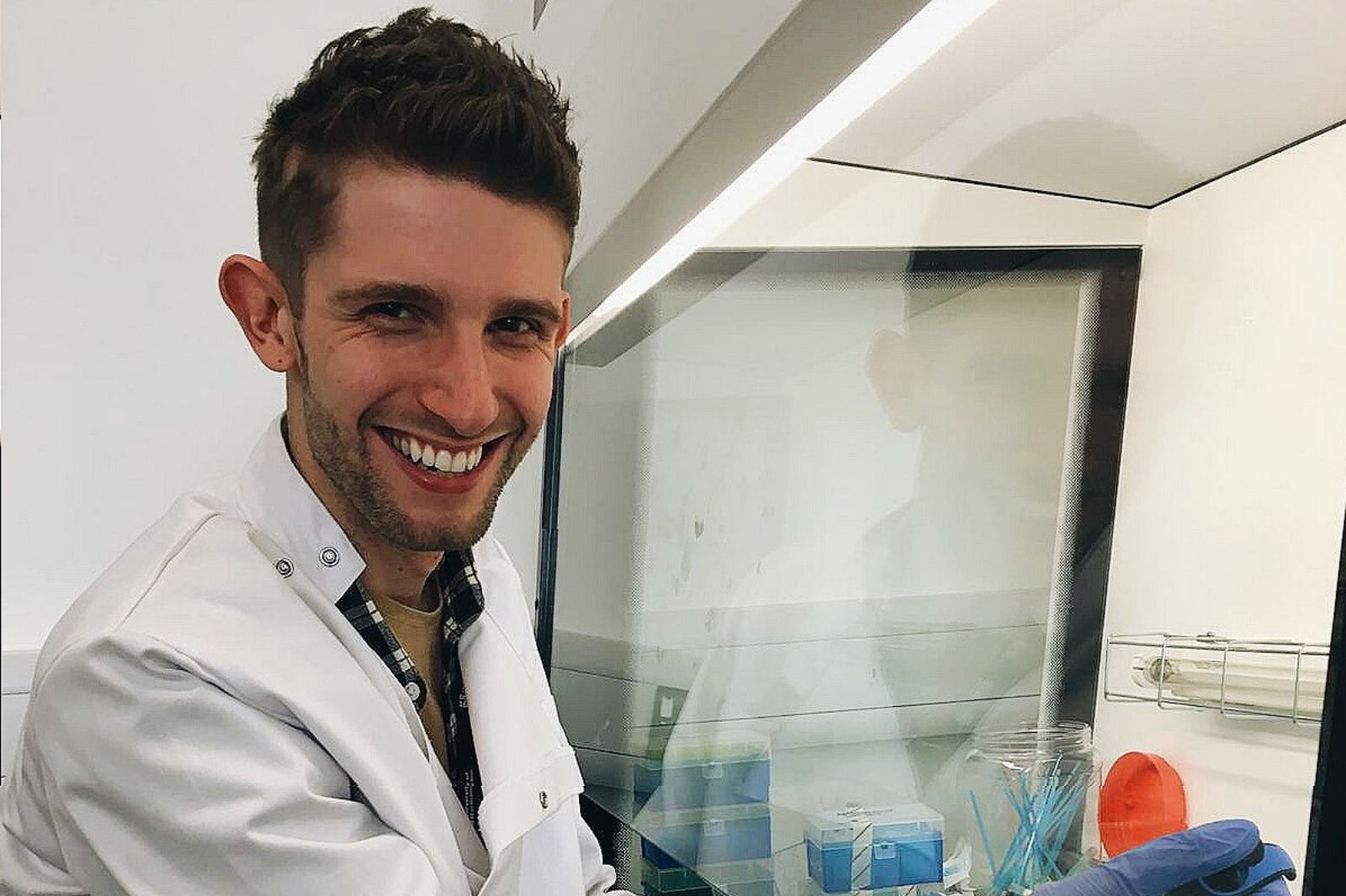Lecturing in the time of COVID-19
Date 27.03.2020
27.03.2020
Public Health lecturer Lewis Waterfield, like all UON academics, has been busier than usual this week.
Lewis – pictured above in our science labs last year – shifted his teaching to being entirely online, continued research for his PhD, started a new and very topical aspect to his teaching as well as appearing in a BBC Horizon documentary.
Here, he blogs about his first week lecturing remotely and how his students are benefiting, with sage lessons for them about how a pandemic ‘works’.
What a challenging week it has been for us all.
I have been busy teaching the last of my MSc Public Health students about outbreak investigations…at the same time as a very real global outbreak pandemic.
We learned about the main causative agents, mainly consisting of disease-causing microbes within a local population (bacteria, viruses, and fungi).
We also investigated what planning measures Public Health England have in place to detect outbreaks of disease through surveillance reporting, to inform subsequent management.
Students learnt how to calculate both case fatality and recovery rates for COVID-19 and also within smaller outbreaks covering such things as food poisoning cases.
We carried out our own outbreak simulation in class for ‘X Fever’ and students had to use role-play for investigation and plot their own ‘epidemic curve’ to help analyse the outbreak trend and determine possible mode of spread.
The majority of students who study MSc Public Health are international and come from far and wide, with varied health and scientific backgrounds, so sessions always offer interesting insights based on their personal and professional experience.
Amongst my teaching responsibilities I am two years in to a six year, part-time PhD within the Faculty of Arts, Science and Technology, looking at how bacteria can use metals within our bodies (iron and copper) to survive and cause invasive disease.
The bacteria I am researching are Streptococcus pneumoniae which, as the name suggests, is a causative agent of pneumonia in humans. My research looks at how these bacteria use iron and copper to colonise their host – complex and fascinating!
Levels of metals that are low in availability will ‘starve’ the bacteria and, at higher levels, lead to toxicity, so the bacteria (and us) need just the right amount. This research is therefore focusing on how the bacteria interacts with excess and starvation levels of metals within the host, so we can attempt to unravel this complex interaction between bacteria and their hosts.
Following on from the topic of metal toxicity, I was part of a BBC 2 Horizon documentary this week surrounding how toxic metal waste contaminated Corby residents and visitors in the 1990’s. This resulted in the birth of children with upper limb defects, all of which happened in the womb of expectant mothers.
Unfortunately, my mum was exposed and I turned out to be one of those children who was born with hand deformities, mainly missing index fingers and with some thumb deformities.
The aim of the documentary – produced to mark the tenth anniversary since the landmark High Court battle against Corby Borough Council – was to highlight the complex issues surrounding public health safety, the science behind how metal poisoning became a possibility and the subsequent impact on the lives of the families involved within the town of Corby.
Feel free to watch this moving and rather emotive documentary as it’s available to watch on the iPlayer for the next few weeks.
I’m also currently working with researchers and lecturers at the University to use myself as a case study surrounding contaminated land and the risk to health in modules from Environmental Science, Human Biosciences and my own Public Health students.
If you want to speak to me about anything further, regarding my research, teaching or High Court battle, please do get in touch at Lewis.Waterfield@Northampton.ac.uk
For now please continue washing your hands, observing social distancing rules and all other official advice from the government.
It really is true when they say we are all “in this together” – by working together, we’ll reach the light at the end of the tunnel a lot sooner!